Digital Inclusion – Shortlist
Meet the five Shortlisted entries for the Digital Inclusion category in the 2023 Digital Culture Awards, which celebrates innovative use of digital technology to improve access to creativity and culture for diverse and representative audiences.
The Winner in this category will be chosen by a public vote. Voting closed on Monday 20 March and the Winners will be announced at the Digital Culture Awards livestream on Wednesday 29 March.
The Shortlist
Please note that the content on these pages was submitted as part of the entry process, and contains content produced by the entrants.
1. Beacon Films CIC – Virtual Visionaries
An immersive video exhibition by Beacon Films that gave a creative voice to twenty young people with Profound and Multiple Learning Disabilities.
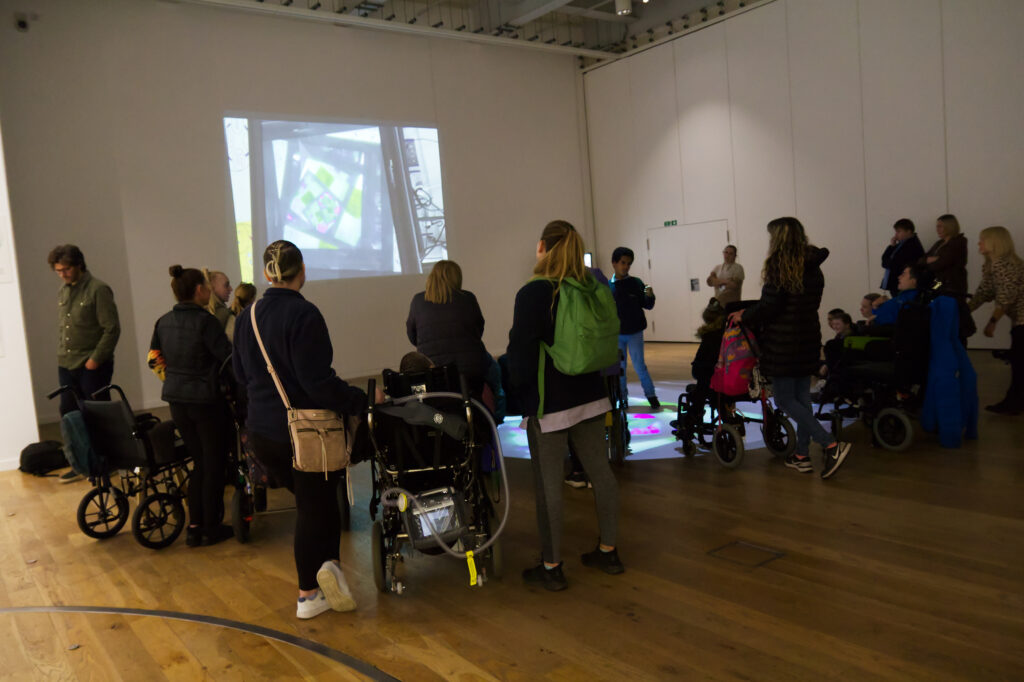
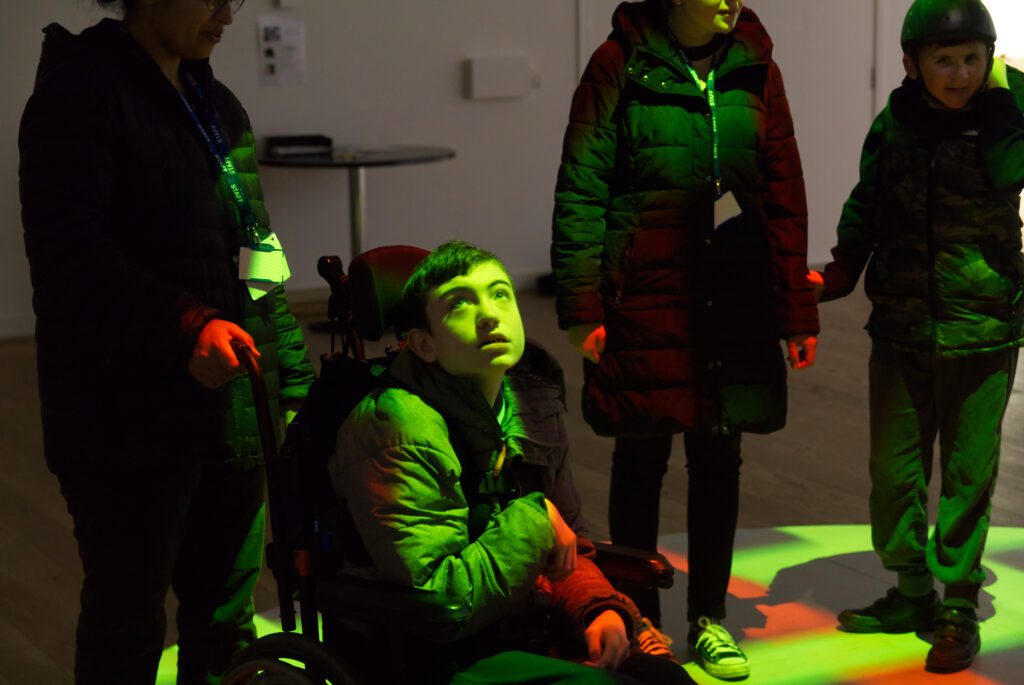
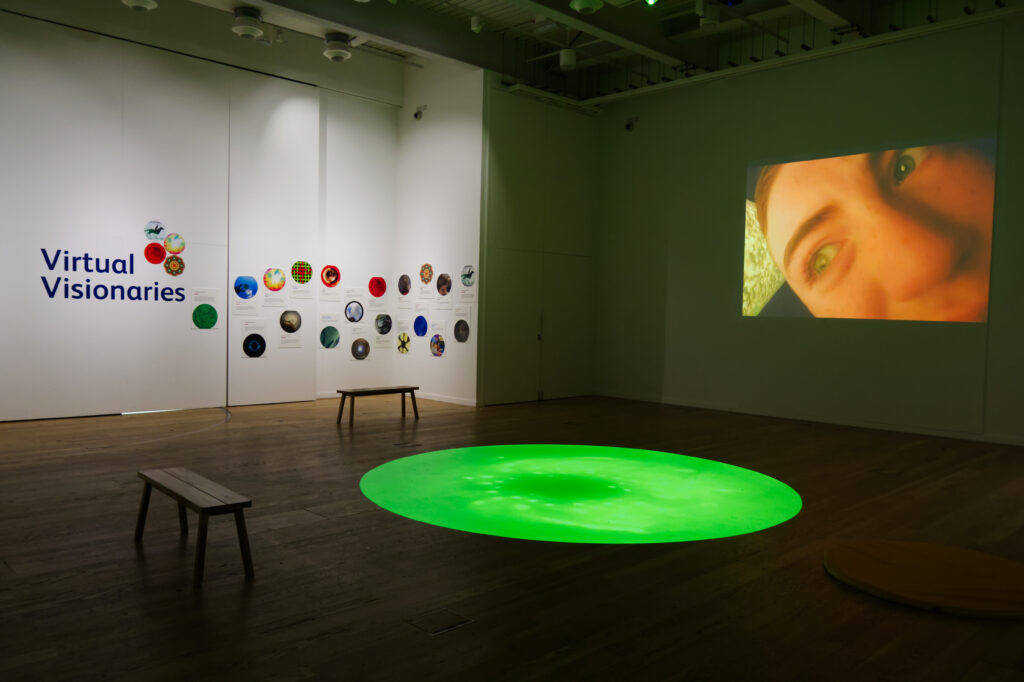
Virtual Visionaries aimed to find ways to use digital and immersive technologies to enable young people with Profound and Multiple Learning Disabilities to enjoy and create art.
We wanted to find out how digital and immersive technologies could help one of the most excluded groups from arts and culture to be recognised not only as audiences, but as creators too.
Working with four schools across Tyneside, a team of Disabled and non-Disabled artists from Beacon Films worked on a one-to-one basis with twenty students, with the support of school staff.
The team filmed the young people taking part in activities they enjoyed and then showed the material back to them to see what visual or audio cues they responded to most positively.
Whilst the elements that students liked the most were incorporated into the film, musician Simon Tarrant worked with small groups of young people to create a soundtrack to accompany their visuals.
VIRTUAL VISIONARIES, the resulting large scale immersive video installation, was opened at Great North Museum: Hancock in Newcastle in October 2022.
The project was led by Beacon Films CIC, which is an award-winning production company of Disabled and non-Disabled, Autistic and neurodivergent filmmakers, based in Newcastle upon Tyne.
The project partners included Great North Museum, Novak, Dryden School, Sir Charles Parsons School, Beacon Hill School, and Hedley’s College.
The project was funded by Arts Council England and Sir James Knott Trust.
2. Nottingham Playhouse – Virtual Reality Headsets to Improve Accessibility at Theatre Performances and Touch Tours
Nottingham Playhouse are trialling new VR Headsets to improve accessibility of shows and touch tours. In collaboration with MySight Notts, the trial features new VR technology led by professionals with lived experience of sight loss and 25 years of teaching assistive technology.
The Virtual Reality headset is the same as one used for Virtual Reality gaming, it comprises a padded outer plastic casing, adjustable lenses, and an inbuilt smartphone. The wearer uses straps to attach the headset to their head. The user can:
- Swipe forward or backward on a panel on the side of the headset to zoom in and out as required.
- Swipe up and down on the panel adjust brightness.
- Change the contrast as well as the brightness, so that, for example, the user can view dark text on top of a yellow background (amongst other possible colour combinations) making caption boxes easier to read.
A particular mode within the settings highlights details for people with particular eye conditions, allowing individuals to better access and enjoy details of a stage set or costume, elevating touch tour experiences.
Virtual Reality Headset Description and Testimonies of use:
“[I] went from seeing practically nothing on stage to being able to follow the cast around, determine what they were wearing and what was on the table in the background.”
“I wouldn’t have missed this for the world!”
“We can’t praise the Playhouse or the cast of the show enough, firstly for guiding us backstage, then to showing us the stage, the costumes and some of the props”.
“We really appreciate you giving us the opportunity to trial the headset last week. From our perspective it was a resounding success … The touch tour was absolutely incredible and really helped us in understanding the layout of the set and see things up close that we would have missed”.
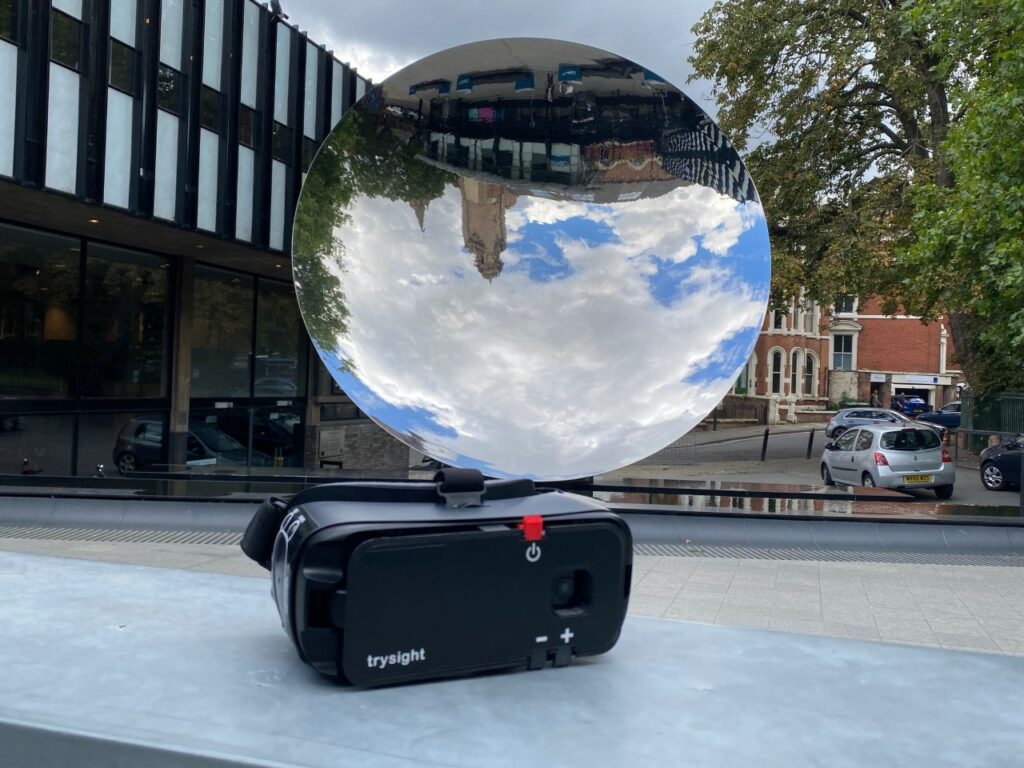
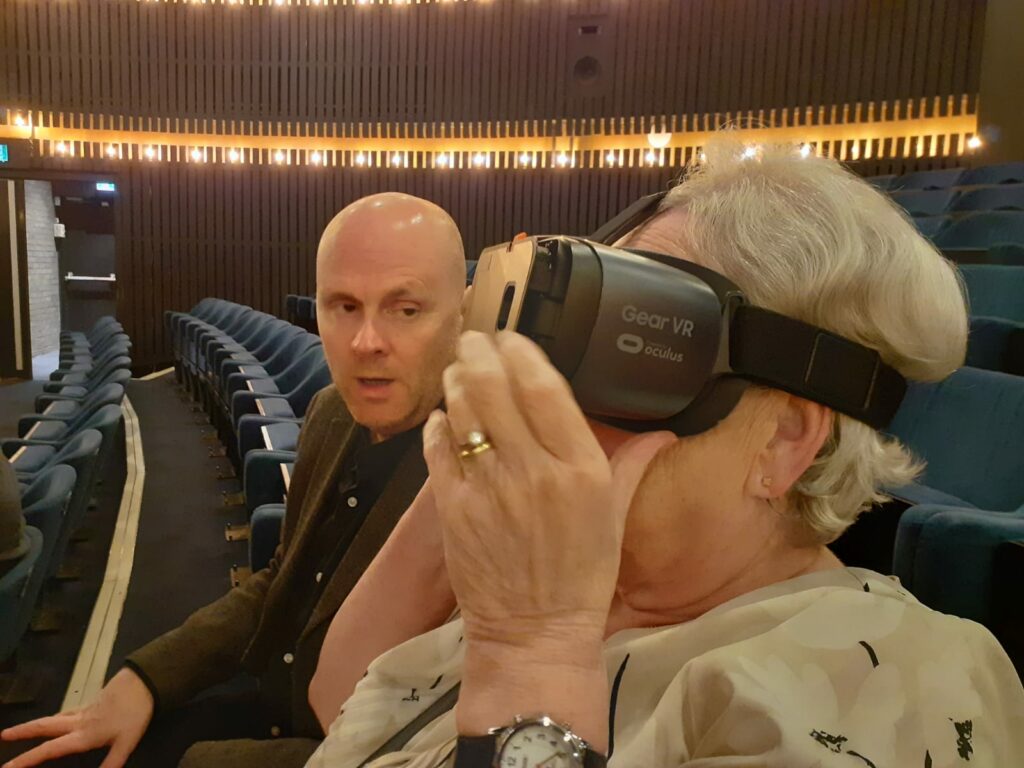
3. Oily Cart – Sound Symphony At Home
As part of a more flexible offer to audience of disabled and neurodivergent young people – many of whom were shielding throughout the pandemic – we created a digital offer for our touring show ‘Sound Symphony’ creating an interactive sound website and accompanying short film.
Sound Symphony: interactive website
A website that provides at at-home alternative (or additional experience) that links thematically to the Sound Symphony touring production created with and for Autistic young people. The website was created by an Autistic web developer and in collaboration with an Autistic access consultant. This link is optimised for desktop – please see instructions in preceding YouTube video (also available via the site). It can also be used on mobile / tablet but will play videos sequentially rather than simultaneously.
Access the ‘Sound Symphony: interactive website‘
4. Sense Charity – Moving Portraits: a dancefilm accessible for everyone
Moving Portraits, produced by Sense charity captures six portraits from dancers who are deafblind &/or are living with complex disabilities. The film combined, cinematography, audio description & vibrational technology to create a film that can be accessible for everybody.
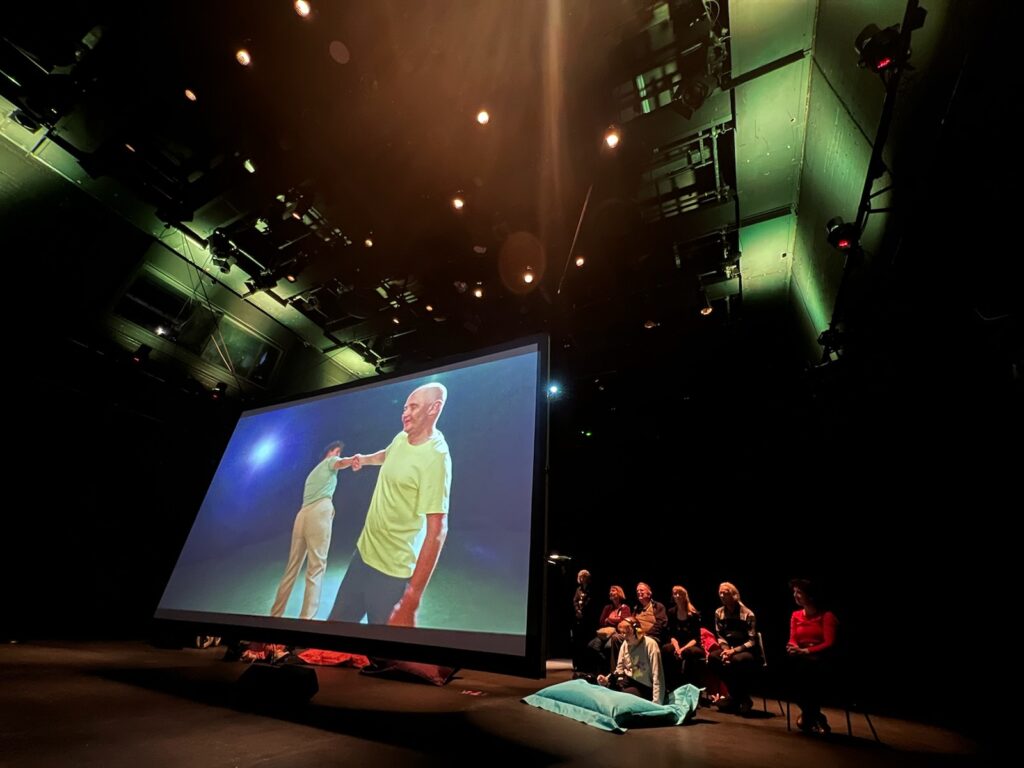
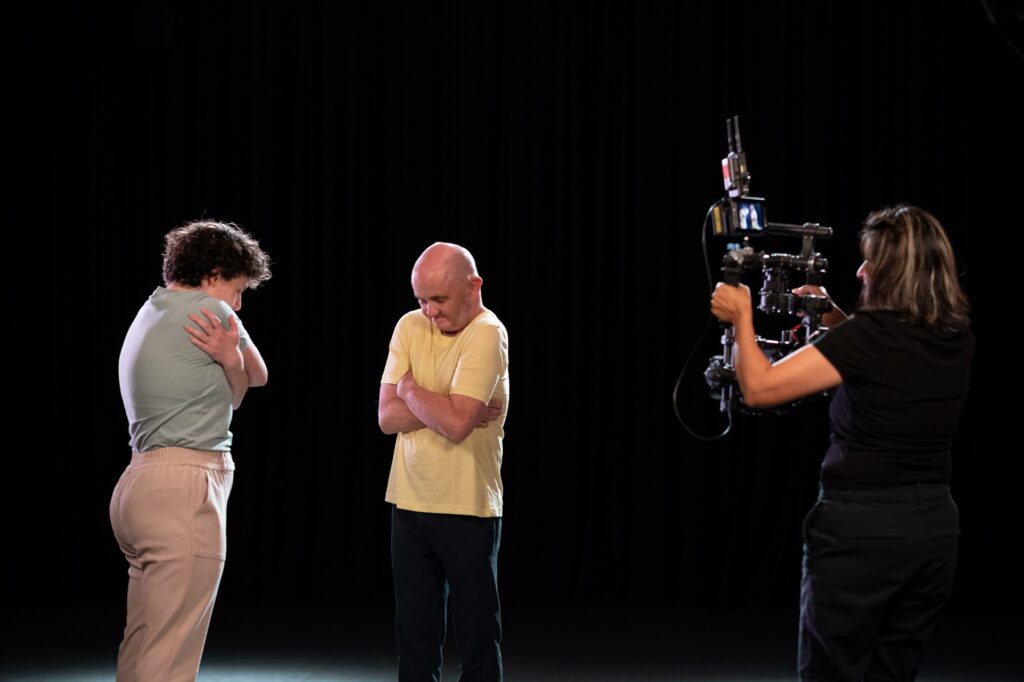
Please follow this URL to find out about Lisa Simpson the creative director of sense inclusive dance programme and creative director of Moving Portraits – https://www.sense.org.uk/blog/choreography-is-like-designing-with-bodies/
Find out about the Moving Portraits screening at The Rep as part of B2022
Find out about sense inclusive dance programme
Find out about screen dance director Sima Gonsai
5. Walk the Plank – Green Space Dark Skies
Green Space Dark Skies, produced by Walk the Plank, aimed to encourage everyone to understand their right to explore and protect our landscapes, remove barriers to access, ensure inclusivity and engage diverse communities directly to participate in events.
Download the PDF document ‘Introduction to Walk the Plank and Green Space Dark Skies’.
Alongside our series of 16 short, free to watch captioned films, we produced a series of Audio Described versions of each film to ensure our content was as accessible as possible. As Green Space Dark Skies was such a visual project, we wanted to make sure blind and partially sighted people could also enjoy our short films and experience the beautiful UK landscape.
We also ensured that these films were included in our targeted digital advertising, including through placement on channels within visually impaired online communities.
Throughout the year we’ve brought the UK landscape into more people’s lives through posting live content from each of our events on social media stories, then sharing each of the films and key messaging about the Green Space Dark Skies project.
1.2 million people saw our Facebook content with 146k interactions. We created online dialogue around our key messages and events to create a community who felt comfortable to share their experiences and stories with us. This dialogue enriched our content, from Lumenator social media quote cards to reformatting a poem from a participant into a short video; we shared snippets and stories from across the country in creative ways. We also ensured we utilised alt tags and described our images and films in detail for visually impaired communities, each film was captioned for the D/deaf community and we shared a wide range of images, as well as the films, to assist our neuro divergent followers.
Green Space Dark Skies has reached over two million people across these platforms, and engaged in many deep and meaningful conversations and discussed people’s Green Space Stories via our accompanying citizen science project.
Green Space Dark Skies on social:
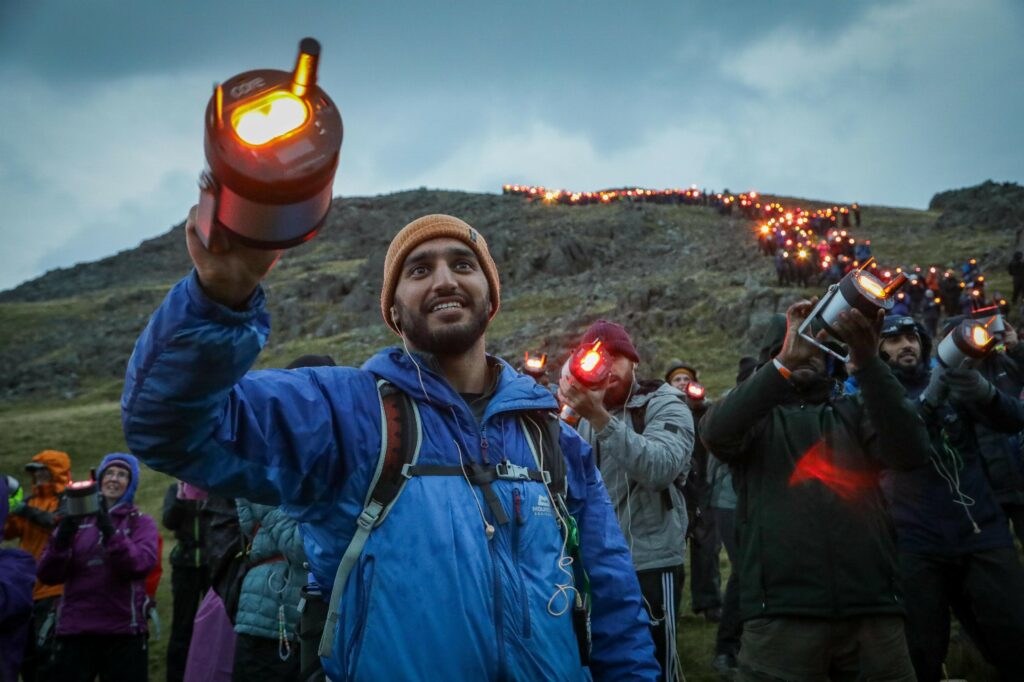
What next?
You’re invited to join us live for the Digital Culture Awards livestream on 29 March. Book your place at the awards livestream.
Head back to the main Awards page on our website to learn about the Shortlist in out other eight categories. Learn more about the Digital Culture Awards Shortlist.

